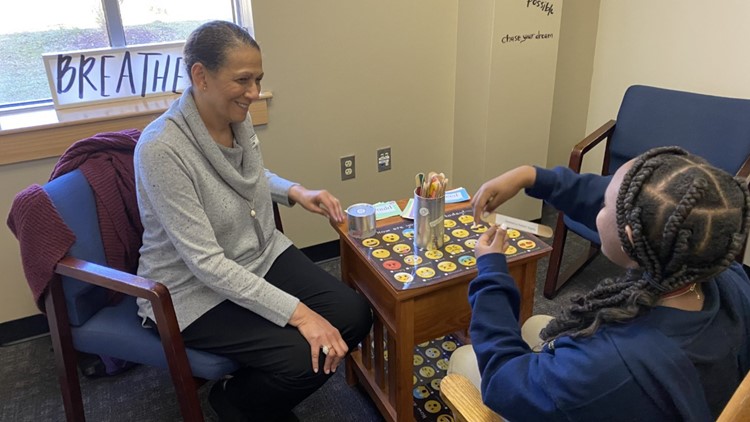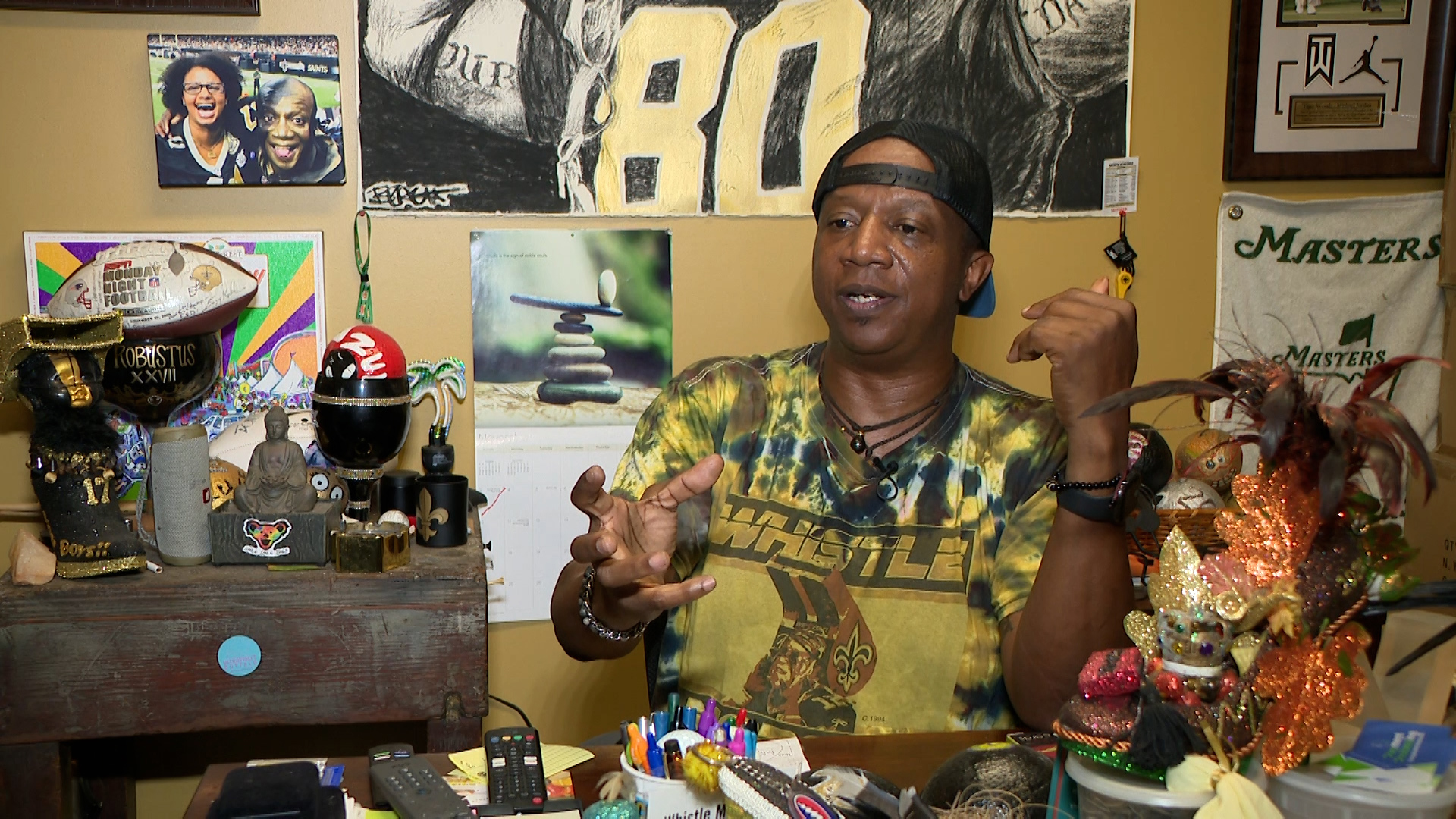BATON ROUGE, La. — In fourth-grade teacher Laura Spurgeon’s class, the students who attended school in person during the pandemic sit in one area, and those who were online last year sit in another. A third group, the students still working from home, join in on a screen.
“It’s like I’m teaching three different levels instead of one,” Spurgeon said. “The students who still stay at home ‘sick 'and have to join via Zoom, the ones that opted for online last year and didn’t learn as much, and the kiddos who have been in person the entire time.”
With the COVID-19 disruptions, standardized test scores for students in grades 3 through 8 have fallen in 69 of 72 Louisiana school districts. State performance scores for schools and school districts, released in early December, fell overall as well.
Teachers, administrators and counselors are trying to figure out how to help many students catch up and get K-12 education back on track. However, they must determine how to reach students who are now performing at different levels while also dealing with the psychological fallout on children who had limited social contact during the shutdowns.
What makes this even harder is that many schools across the state are facing a shortage of teachers. Older teachers are opting for retirement rather than face health risks, and new college education graduates are passing on jobs they view as offering too little pay.
And the teachers who are still on the frontlines are working harder than ever and reaching out to parents of struggling students through phone calls or emails.
Morgan Story, a high school teacher at MSA West Academy in Plaquemine, said most parents have been understanding and are working with her to help their children.
“They really just needed a voice of a teacher being like ‘All right, I know we’re struggling. This is where we’re at with it, too. This is what you really need to focus on.’ And that helped a lot of parents.”
Funding, staff morale problems, and concerns about student performance are long-standing issues for many Louisiana school districts. But they have taken on a new urgency as schools try to return to normal operations to accommodate all their students.
“We do so much that doesn’t go into the contract that you sign,” said Taylor Rising, an art teacher at McKinley Middle Academic Magnet School in Baton Rouge. “You know, it’s not in the job description, the number of things that we have to do for the children.”
Not only do they have to adequately teach the material in-person and online, but they also have to take care of themselves while helping students who are struggling emotionally and psychologically.
“It’s hard to take home, and it’s hard to hear my kids going through some of the same things I’m going through, and then I have to respond to that,” Story said.
Standardized test scores released in August showed that the percentage of students in grades 3 through 8 statewide who achieved the mastery level or above in key subjects dropped to 29% from 34% before the pandemic.
The test score results also showed that the students who attended in-person last year achieved the mastery level at a 15% higher rate than students who were completely online, and the online students had an 11% higher rate of unsatisfactory scores on average than the in-person students.
Some of the biggest drops were in math, and teachers and parents are turning to tutoring to help children improve.
Remote and in-person
In East Baton Rouge Parish, the number of students attending class virtually peaked at 15,613 as COVID cases surged through the state. That number dropped this fall, though it could rise again as the Omicron variant spreads. The East Baton Rouge district also established an online school for students wanting to continue their education entirely online.
“The students who participated in online learning are clearly behind,” Spurgeon, who teaches at Twin Oaks Elementary School, said. “I can see it in almost every activity they do.”
Dr. Susan Thornton, a licensed care specialist at McKinley Middle, said that besides being more easily distracted online, many children missed the familiar sounds that typically anchored their school days.
“You’ve got the bell sounds, you’ve got somebody yelling, you got a door slamming,” she said. “Those are the sounds. Those are the teenage school sounds we need to be hearing. They missed that. They really missed that.”
As a result, she said, “We need to dig a little bit deeper to see, you know, what’s happening, or if they just break down and start crying…we need to find out what’s going on. We missed that in the pandemic; we didn't have it. They were not here.”
Rising, from McKinley Middle, said she notices students acting out-of-line more often than usual since the pandemic. She mentioned a national trend on TikTok called “devious licks,” which shows students misbehaving and even partaking in criminal behavior during the pandemic. Rising has noticed some of her own students developing similar behavior.
“I think that they see the world is kind of like, on fire, and so I guess their instinct is to, like, act out to get attention or something like that,” she said. “But yeah, I really feel for these kids.”
The shortage of teachers is also making it harder for schools to recover from the pandemic.
Johnita Smith, a librarian and English language arts teacher in Jefferson Parish, said some schools have compensated for teaching vacancies by increasing the numbers of students in their classes and by moving teachers from one subject to another.
When one school had trouble finding a curriculum director this fall, she said, students had to hang out for days in the gym waiting for class schedules.
Some teachers are leaving because of a lack of adequate pay, while some say the profession does not get enough respect for all that it entails.
“It was just too much for some people,” Rising said. “It’s a lot to ask...for the amount of pay and the smidgen of respect we get.”
Low pay
Even with a recent $800 a year raise, public school teachers in Louisiana earn an average of $50,923, or $4,007 below the Southern regional average. Gov. John Bel Edwards said Friday that he would push for another pay raise for teachers next year.
Teacher retirements surged during the pandemic, and a survey by the LSU Department of Education in August found that up to 35% of the remaining K-12 teachers are considering leaving the profession.
The number of education majors at LSU has also dropped sharply in recent years, reflecting a national trend.
Dr. Richard Baker from LSU’s Geaux Teach Humanities Program said that some teachers do not feel they have the time, trust or safety to do good jobs. Along with the health risks, he referenced the stories of gun violence and the responsibility of teachers to be prepared for life-endangering situations as reasons to not be in schools.
“Teachers are thinking, ‘If I don't feel safe as a human being, I'm going to do something else,’” Baker said.
The state requires teachers to receive advanced education, while also spelling out what and how they can teach. Teachers additionally face an assessment called the value-added system, which combines student test scores with individual teacher evaluations. A teacher who fails could lose his or her license.
“It’s very discouraging to teachers,” Dr. James Madden of LSU’s Geaux Teach STEM program said. “Teachers don’t like to be treated as a number, and value-added reduces them to numbers.”
Madden said that the STEM program, which was founded to inspire a new generation of science and technology teachers, produced 30 students seven years ago but is now producing a dozen at most.
“We are approaching the Dead Sea,” he said.
Rising said some of the students hit hardest by all these problems are those who face the biggest transitions, such as shifting from elementary to middle school.
“We’re pretending that everything is peachy-keen and fine and dandy, but it’s really not,” she said. “But you just kind of have to keep pushing, and they’re going through it.”



